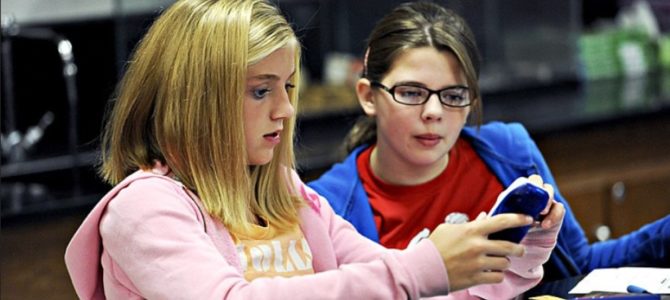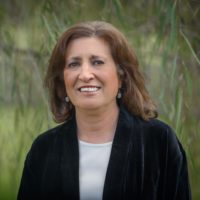
We ought to ask ourselves what public schools will look like and feel like once radical educrats and politicos agree to reopen them. I think schools will re-open across the board, but only when our ruling class is good and ready for that.
The big question is what the Wuhan-induced closures seem to accomplish for these elites and what sort of school-scape they have envisioned for the future. What will the student body look like? The parents of public-school students? The curriculum?
I don’t have a crystal ball, but I think we can infer eight negative outcomes down the pike after a long period of politicized school closures that were never justified by medical science. I imagine our ruling elites will be happy with such outcomes. We should be prepared for the following.
1. Even More Peer Pressure to Conform
Our famine of social connection will likely spark a greater tolerance for blind conformity. There has been a mass starvation for peer connection among students. Many have been numbed by the drudgery of online learning with no outlets through sports and clubs, no human contact with teachers and peers.
Parents are also starving for a place their kids can engage with others during the workday. So might they now be willing to swallow anything for some relief?
There’s a phrase attributed to Lenin: “The worse, the better,” which means that the more misery people feel, the better it is for the success of communism (or perhaps the “great reset”). The longer people suffer in isolation, the higher the toll and more susceptible they are to depression and self-harm. So after a long period of social deprivation, they may become far more willing to conform under the slightest of social pressures, no matter what’s asked of them.
2. Less-Engaged Parents
There has been a marked increase in homeschooling during the past year’s school closures, as well as a huge uptick in positive attitudes towards homeschooling. Parents who are now fleeing online public schooling may well continue homeschooling after government schools re-open.
In addition, affluent parents (including elitists who promote school closures, like California Gov. Gavin Newsom) are simply sending their kids to private in-person schools. All of these trends mean that a significantly larger percentage of the student body will consist of kids whose parents are less engaged. As Will Collins recently pointed out in an article at The American Conservative, this means fewer parents to push back against radical agendas in the schools.
3. Accelerated Left-Wing Radicalism
“The pace of left-wing radicalism will likely accelerate,” in the schools, Collins states. After all, school boards have been busier than ever renaming schools (including those named for Abraham Lincoln) and introducing radical curriculum changes even while closed for real business. Illinois now requires teachers to indoctrinate students in leftist propaganda of critical race theory and gender ideology, among other things.
Against this backdrop, we can only surmise that once parental involvement has been effectively curtailed after a “reset” of more than a year, public schools will have far less parental pushback against curricula like the 1619 Project, critical race theory, dysfunctional math, white privilege workshops, mandatory transgenderism, and the like. School board accountability will precipitously plummet with fewer engaged parents in the system.
4. Harder Fight for Decent Families
Engaged parents who hope to swim against the tide in the public schools may find they are not up for the fight. They and their children are certain to be increasingly marginalized, particularly as radical reformers push a new ideology meant to abolish another “systemic” social problem: “family privilege.”
If such a concept takes off, we have to imagine workshops, similar to “white privilege workshops,” that would require students to confess their confess guilt for “unearned” family privileges such as going on family vacations or having live-in siblings or private gatherings around the dinner table.
The potential for setting kids against their family-privileged peers is great. And that means more bullying. As kids try to fit in, they could also become estranged from parents whose values conflict with radicalized teachings.
5. Converting Students Into Activists
Schools will increasingly use students as agitators for “social change.” The curricula will be saturated with ever more radical propaganda. As propaganda expert Jacques Ellul has noted, the entire purpose of propaganda is to stir people into action.
We already saw a lot of programmed agitation before the Wuhan virus shut down schools and businesses. For example, in recent years public schools have had students participate in gun control marches and climate crisis strikes during school hours.
As students are deprived of content knowledge while exposed to ever shriller talking points of identity politics and political correctness, they naturally become more alienated, more atomized, and therefore more conditioned to a mob mindset. In a school setting, it’s easy to pressure students to follow the lead of their leftist peers and teachers to participate in street theater. There’s loads of historical precedent for using youth to march for social change, including the Komsomol League in the Soviet Union and the Red Guard in Mao’s China.
6. Longer School Hours
School hours will increase, bleeding into mandatory summer school and other programs to keep kids in schools as long as possible. Joe Biden’s Secretary of Education Miguel Cardona recently released his “Five Point Plan for Reopening Schools,” which includes the need for making up for lost time in order to “level the playing field.”
This opens the door to the idea of a nationally mandated summer school. As an old saying goes: There’s nothing more permanent than a temporary government program.
Extending school hours — and years — is an old agenda item. For many years, the National Education Association union (until just recently) posted on its website a call to making schooling compulsory to age 21 if students don’t satisfactorily complete graduation requirements. There is also the push to lower the compulsory school starting age and even to make preschool mandatory.
7. Increased Isolation Even Back at School
More enforced conformity could actually breed more alienation and isolation than pre-COVID. The shutdowns are causing spikes in depression and even suicide among students who cannot tolerate the isolation.
Imagine, however, what would happen when the physical isolation ends, but a more insidious form of mental isolation takes place. As children undergo the coercive thought reform programs of critical race theory and transgender ideology, their minds become poisoned with hatred towards America and one another. This creates a sense of anomie—loneliness when in a crowd—that’s bound to create even more stress.
8. More School Invasion of Children’s Private Life
More anxieties among youth will give educrats more excuses to invade a child’s private mind with “socioemotional learning.” Elitist educrats can sell a cure for the stress they’ve cultivated in their newly opened hyper-Orwellian schools: the attractive idea of social and emotional “learning” (SEL). Advocates of SEL claim the curriculum will help students function better emotionally and relate better to their peers, but it depends heavily on data mining children to assess and affect their feelings and family attitudes.
The long-term shutdowns of schools have caused a lot of us to clamor continuously to “Open the d-mned schools!” as one governor put it in an op-ed. Let’s be careful what we wish for.
Radical education reformers have been intent on keeping schools shuttered despite widespread public outrage over the closures and despite the fact that serious risks from COVID are known to be extremely low for youth. Whatever their real reasons, they can’t be good for kids or parents. But it seems more than plausible that these prolonged school lockdowns could be a windfall for social engineers who can use the shutdowns to push for radicalized agendas upon re-opening.









